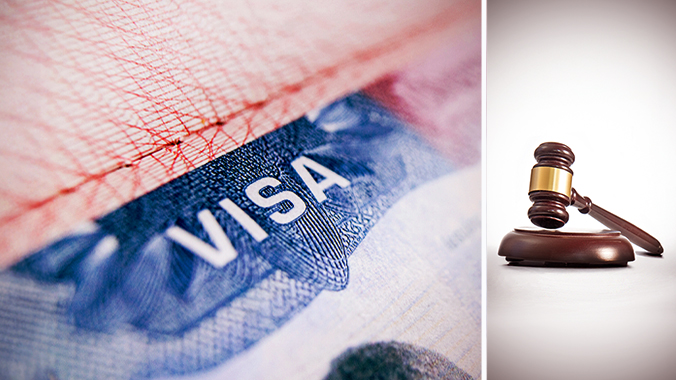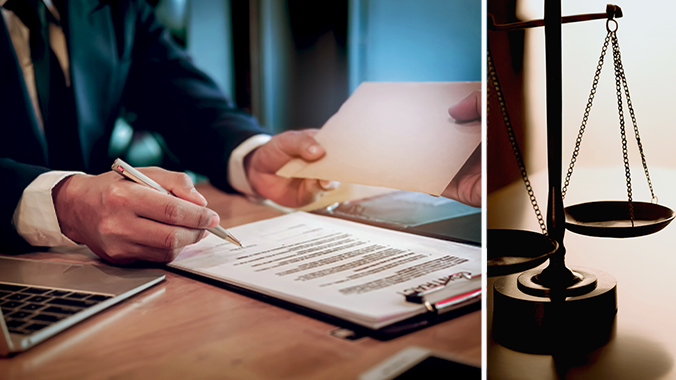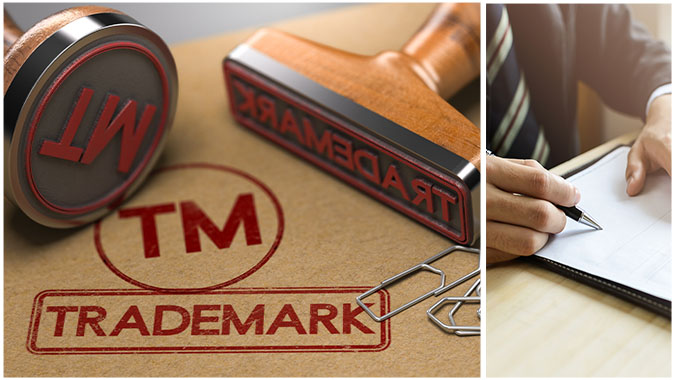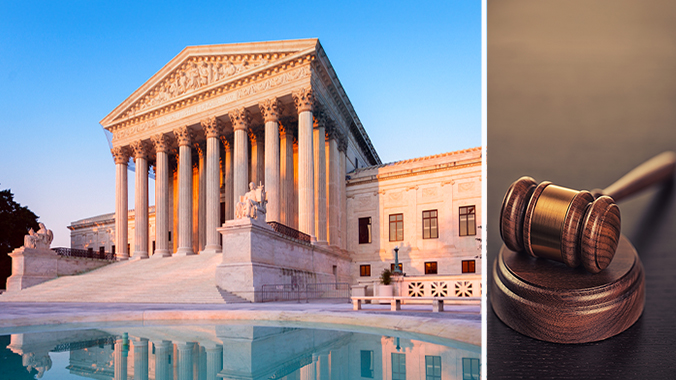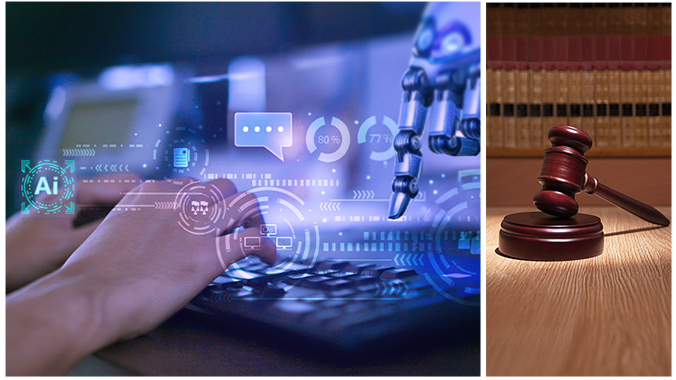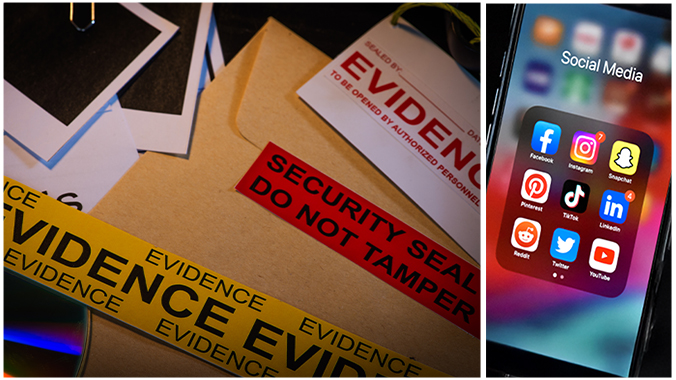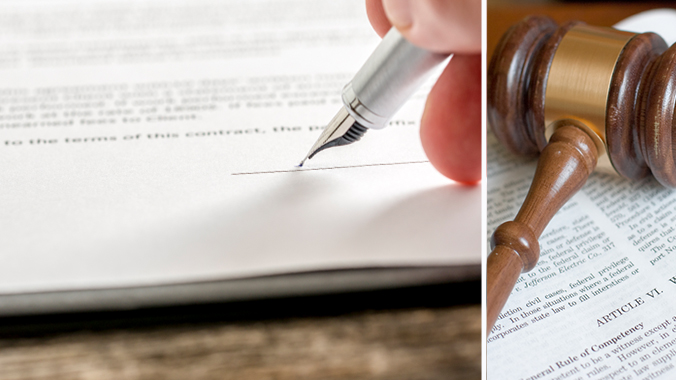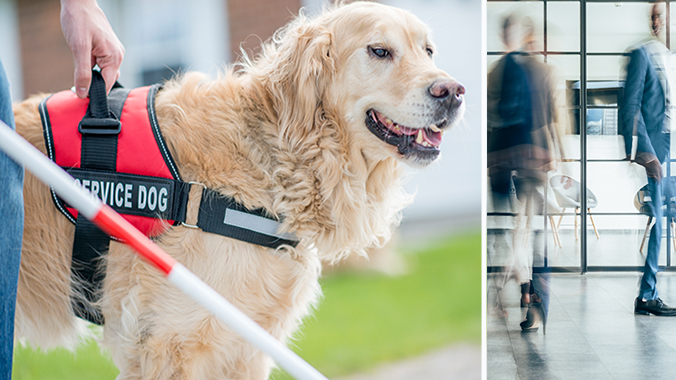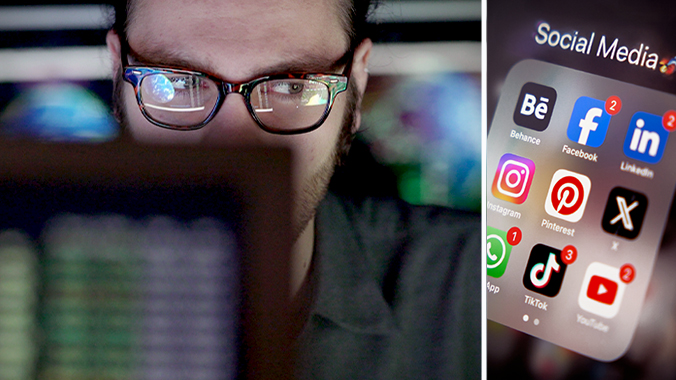Hot Topics in AI Lawyers Should Know: AI and copyright changes, the AI policy act, and rules of professional conduct in use of AI



On-Demand: May 9, 2024
4 hour CLE
Tuition: $295.00
Co-Sponsored by myLawCLE
Get this course, plus over 1,000+ of live webinars.
Learn More
Training 5 or more people?
Sign-up for a law firm subscription plan and each attorney in the firm receives free access to all CLE Programs
Program Summary
Session I - AI and Copyright – Analyzing The Legal Impact of Generative AI Under the Copyright Act - Courtney Sarnow
Generative AI is not only monopolizing the news, but it is legitimately changing how people live and work. With respect to human creativity as expressed in writing, art, music, etc., Generative AI is reshaping not only how we create, but how the law will address this new kind of creativity. Copyright law, which has regulated the protection of creative expression since the founding of the nation, is particularly impacted by these changes. This seminar will address what the current law is with respect to Copyright and AI, what new gaps have developed in Copyright law as a result of the advent of Generative AI, and where the trends are likely to lead us.
Key topics to be discussed:
- Copyright
- Generative AI
- The intersection of Copyright and Generative AI
- Gaps in the Current Law
- Best Practices
Session II - The AI Policy Act – What This Means for Businesses and the Future of AI Regulation in the US – Dhara Shah
Utah was the first to cross the finish line this year in regulating the ever-increasing use of generative AI tools. This discussion will dive into key requirements the Utah AI Policy Act places on businesses, discuss key considerations for businesses integrating the use of AI – whether through internally developed tools or through engagement of AI vendors – and look forward to what is on the horizon for AI regulation in the US.
Key topics to be discussed:
- Generative AI
- Breakdown of Utah’s AI Policy Act
- Key Considerations for Businesses Using AI
- Future of AI Legislation in the US
Session III - Ethical AI in Law: Navigating the Rules of Professional Conduct - Cari L. Sheehan
This seminar aims to prepare legal and business professionals for the intricate ethical terrain that comes with incorporating artificial intelligence into the legal and business sectors. With the rise of AI technologies, attorneys encounter distinct ethical challenges and prospects in maintaining ethical integrity pursuant to Rules of Professional Conduct, particularly the following: (1) Rule 1.1 (Competence), ensuring they possess the necessary skills and knowledge to navigate AI's impact; (2) Rule 1.4 (Communication), guaranteeing clear and thorough communication with clients regarding the implications of AI technologies on their cases or business operations; (3) Rule 1.6 (Confidentiality of Information) is paramount, especially as AI tools might access or process sensitive information; (4) Rule 1.5 (Fees), particularly in the context of charging clients for the use of AI-driven services or solutions; and (5) Rule 8.4 (Misconduct/Baias) regarding actions that are prejudicial to the administration of justice and how AI can produce bias results. This seminar will discuss these Rules of Professional Conduct with live demonstrations and examples.
Key topics to be discussed:
- Discussion of Rules of Professional Conduct 1.1, 1.4, 1.5, 1.6, and 8.4.
- Discussion of the proper uses of AI for attorneys in compliance with the Rules of Professional Conduct
- Live demonstrations of ChatGPT and the dangers for attorneys
- Discussion of other concerns regarding AI regarding client use, evidence manipulation, and cybersecurity
This course is co-sponsored with myLawCLE.
![]() Closed-captioning available
Closed-captioning available
Speakers
 Courtney Sarnow, Partner | Culhane Meadows
Courtney Sarnow, Partner | Culhane Meadows
Courtney Sarnow is a partner in the Atlanta office of Culhane Meadows with over twenty five years of experience in a broad-based transactional practice with a specific focus on intellectual property and technology. She has developed a distinctly creative and problem solving approach to address client plans and issues. As a young attorney, Ms. Sarnow learned that focusing on what a client can’t do and shouldn’t do is unnecessarily limiting and seldom helps the client maximize corporate opportunities. Her approach of looking for ways to accomplish corporate goals within an informed legal framework is more valuable for growth focused, technology forward companies than a stereotypical corporate counsel who instinctively thwarts innovation.
Early in her career with Dow, Lohnes & Albertson in Atlanta, she worked in the Mergers & Acquisitions Group and in IP Licensing with traditional clients, as well as some unusual NASCAR and Professional Bull Rider representation thrown in from time to time. This gave her an appreciation for creative clients. After a sojourn in Philadelphia at Temple University as a Teaching Fellow earning an LLM in Law Teaching and studying developing issues in computer law and software licensing, she returned to Atlanta to teach as an Adjunct at Emory Law and develop a practice focused on intellectual property protection and general corporate strategies for artists, inventers and innovative entrepreneurial ventures.
 Dhara Shah, Counsel | InfoLawGroup LLP
Dhara Shah, Counsel | InfoLawGroup LLP
Dhara focuses her practice on data privacy and technology law. Dhara’s technical background and proficiency with a wide range of programming languages allows her to engage with clients’ in-house legal and operational teams to identify and handle the legal aspects of highly technical issues – while simultaneously meeting business objectives and protecting consumer privacy interests. Dhara serves as the lead of the IAPP’s AI Governance Group and is on the board of the Arizona State Bar’s Technology Advisory Group.
 Cari L. Sheehan, JD | Indiana University Kelley School of Business
Cari L. Sheehan, JD | Indiana University Kelley School of Business
Cari Sheehan is an Assistant Clinical Professor of Business Law & Ethics at the IU Kelley School of Business – Indianapolis where she currently teaches Commercial Law and Business Ethics. Additionally, Ms. Sheehan is an Adjunct Professor at the Robert H. McKinney School of Law where she has taught courses in Appellate Practice and Procedure, Torts, and Professional Responsibility. In practice, Ms. Sheehan is a conflict ethics attorney at Scopelitis Garvin Light Hanson & Feary advising on ethical issues. Ms. Sheehan is a well-respected seminar and continuing legal education speaker covering a range of ethical issues across various platforms both locally and on a national level. Similarly, Ms. Sheehan authors a business ethics column in conjunction with the Hamilton County Business Journal about the benefits and pitfalls of business ethics.
Contact Info:
Email: [email protected]; or [email protected]
Tel: (812) 239-4187
LinkedIn: http://www.linkedin.com/in/cari-sheehan-esq-7583ba3b
Agenda
Session I – AI and Copyright – Analyzing The Legal Impact of Generative AI Under the Copyright Act | 11:40am – 1:50pm
- Copyright Basics. What does copyright law protect? What are the limitations on that protection?
- Generative AI basics. (non-technical) What it is, what it isn’t and where it is heading
Break | 12:40pm – 12:50pm
- The Intersection of Copyright Law and Generative AI
- AI training and scraping as Infringement or Fair Use
- AI generated works as Infringement or Fair Use
- The problem of AI “authorship” of creative works under the Copyright Act
- Gaps in the Current Law
- Protection of Style
- Name Image and Likeness
- Best Practices. How to Survive in a Legal Environment that Changes on a Daily Basis
Break | 1:50pm – 2:00pm
Session II – The AI Policy Act – What This Means for Businesses and the Future of AI Regulation in the US | 2:00pm – 3:00pm
- Generative AI
- Breakdown of Utah’s AI Policy Act
- Key Considerations for Businesses Using AI
- Future of AI Legislation in the US
Break | 3:00pm – 3:10pm
Session III – Ethical AI in Law: Navigating the Rules of Professional Conduct | 3:10pm – 4:10pm
- Discussion of Rules of Professional Conduct 1.1, 1.4, 1.5, 1.6, and 8.4.
- Discussion of the proper uses of AI for attorneys in compliance with the Rules of Professional Conduct
- Live demonstrations of ChatGPT and the dangers for attorneys
- Discussion of other concerns regarding AI regarding client use, evidence manipulation, and cybersecurity
Credits
Alaska
Approved for Self-Study Credits
3 General, 1 Ethics
Alabama
Pending CLE Approval
3 General, 1 Ethics
Arkansas
Approved for CLE Credits
3 General, 1 Ethics
Arizona
Approved for CLE Credits
3 General, 1 Ethics
California
Approved for CLE Credits
3 General, 1 Ethics
Colorado
Approved for Self-Study Credits
2 General, 1 Ethics
Connecticut
Approved for CLE Credits
3 General, 1 Ethics
District of Columbia
No MCLE Required
3 General, 1 Ethics Hours
Delaware
Approved for Self-Study Credits
3 General, 1 Ethics
Florida
Reciprocity
3.5 General, 1 Ethics Hours
Georgia
Approved for CLE Credits
3 General, 1 Ethics
Hawaii
Approved for CLE Credits
3 General, 1 Ethics
Iowa
Pending CLE Approval
3 General, 1 Ethics
Idaho
Pending CLE Approval
3 General, 1 Ethics
Illinois
Approved for Self-Study Credits
3 General, 1 Ethics, Civility, Professionalism
Indiana
Pending CLE Approval
3 General, 1 Ethics
Kansas
Pending CLE Approval
3 Substantive, 1 Ethics
Kentucky
Pending CLE Approval
3 General, 1 Ethics
Louisiana
Pending CLE Approval
3 General, 1 Ethics
Massachusetts
No MCLE Required
3 General, 1 Ethics Hours
Maryland
No MCLE Required
3 General, 1 Ethics Hours
Maine
Pending CLE Approval
3 General, 1 Ethics
Michigan
No MCLE Required
3 General, 1 Ethics Hours
Minnesota
Approved for Self-Study Credits
3 General, 1 Ethics
Missouri
Approved for Self-Study Credits
3.6 General, 1.2 Ethics
Mississippi
Pending CLE Approval
3 General, 1 Other (Ethics / Professionalism)
Montana
Pending CLE Approval
3 General, 1 Ethics
North Carolina
Pending CLE Approval
3 General, 1 Ethics
Nebraska
Pending CLE Approval
3 General, 1 Ethics
New Hampshire
Approved for CLE Credits
180 General minutes, 60 Ethics minutes
New Jersey
Approved for CLE Credits
3.6 General, 1.2 Ethics
New Mexico
Approved for Self-Study Credits
3 General, 1 Ethics
Nevada
Approved for Self-Study Credits
3 General, 1 Ethics
New York
Approved for CLE Credits
3.6 General, 1.2 Ethics
Ohio
Approved for Self-Study Credits
3 General, 1 Professional Conduct
Oklahoma
Pending CLE Approval
3.5 General, 1 Ethics
Oregon
Approved for Self-Study Credits
3 General, 1 Ethics
Pennsylvania
Approved for Self-Study Credits
3 General, 1 Ethics
Rhode Island
Pending CLE Approval
3.5 General, 1 Ethics
South Carolina
Pending CLE Approval
3 General, 1 Ethics
South Dakota
No MCLE Required
3 General, 1 Ethics Hours
Tennessee
Approved for Self-Study Credits
3 General, 1 Ethics
Texas
Pending CLE Approval
3 General, 1 Ethics
Utah
Pending CLE Approval
3 General, 1 Ethics
Virginia
Not Eligible
3 General Hours, 1 Ethics Hours Hours
Vermont
Approved for CLE Credits
3 General, 1 Ethics
Washington
Approved via Attorney Submission
3 Law and Legal, 1 Ethics Hours
Wisconsin
Approved for Self-Study Credits
4.5 General,
West Virginia
Pending CLE Approval
3 General, 1 Ethics
Wyoming
Pending CLE Approval
3 General, 1 Ethics
More CLE Webinars
Trending CLE Webinars






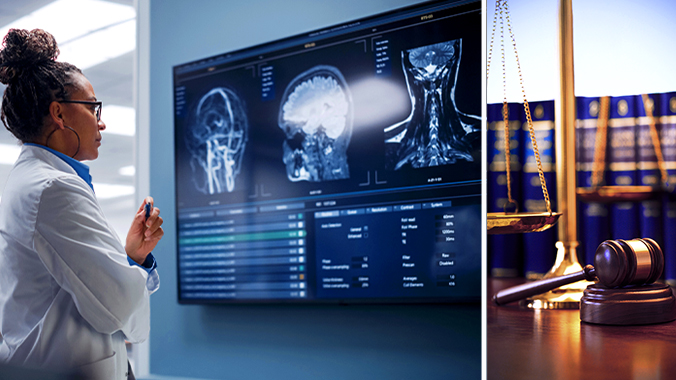


Upcoming CLE Webinars




